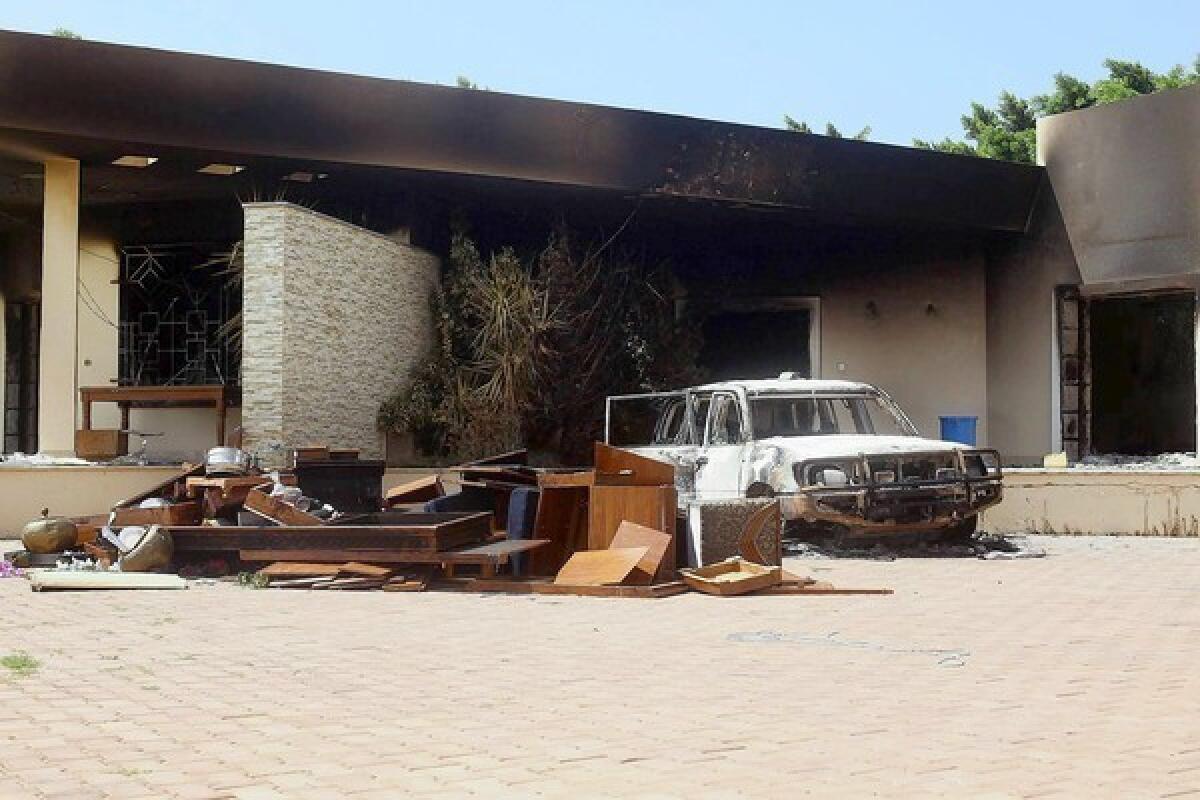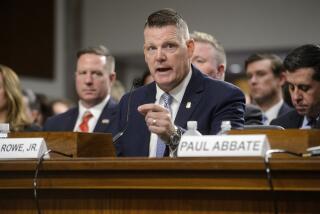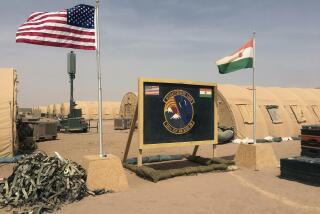U.S. investigators leave consulate in Libya

BENGHAZI, Libya — The investigation of the deadly attack on the U.S. consulate in eastern Libya faces major hurdles, even after a U.S. team gained access to the charred compound this week for the first time.
Libyan officials and guards at the consulate said Friday that FBI investigators who combed the wreckage a day earlier left without interviewing witnesses to the Sept. 11 assault that killed Ambassador J. Christopher Stevens and three other Americans.
After waiting more than three weeks to enter Benghazi because of security issues and delays in obtaining approval from Libyan authorities, it was unclear whether the U.S. team would return.
It also wasn’t clear whether investigators were able to glean any valuable information from the compound, which had essentially been left unguarded since the attack. Until Wednesday, people were able to walk freely around the compound, perhaps destroying or removing evidence. Journalists walked off with sensitive documents, including Stevens’ diary and official itinerary for his visit to Benghazi.
Guards at the former consulate, located on an unfinished road lined with walled villas on Benghazi’s outskirts, said the U.S. team rolled into the city Thursday morning in a convoy of armored SUVs, backed by about 20 armed American personnel and dozens of Libyan police and pro-government militiamen.
Investigators searched through the wreckage for several hours and carted off evidence, including part of a bombed-out vehicle, said the guards, who are employed by the compound’s landlord. After the Americans left, said one guard, who wanted to be identified only as Idris, the landlord instructed them not to let in any more unofficial visitors.
The long delay in getting even that much access has probably compromised the crime scene, experts said. Investigators’ experience contrasts with the aftermath of the 1998 U.S. embassy bombings in Kenya and Tanzania: A small group of Marines reached the Tanzania site immediately after the explosion and an emergency response team arrived in the Kenyan capital two days after the blast there.
But Benghazi is a 10-hour drive from the Libyan capital, Tripoli. The most powerful armed groups here aren’t police or army forces, but militias that led the uprising against strongman Moammar Kadafi last year and have since formed tenuous alliances with the weak central government.
“In any other attack, the host government would shut off all entrances and exits. Here you had gardeners letting people into the compound every day,” said Barak Barfi, an expert on Libya at the New America Foundation.
U.S. officials have declined to discuss details of the investigation, but Libyans say that the FBI hasn’t yet formally questioned witnesses of the attack. Given the difficulty of gaining access to Benghazi, and the fact that some witnesses now fear for their safety, experts wondered whether the investigators would be able to return to the coastal city to conduct interviews.
“If they start coming in with a heavy military presence, it will turn the population against them,” Barfi said. “It’s going to be a very delicate and sensitive operation that the Americans haven’t been in before.”
More to Read
Sign up for Essential California
The most important California stories and recommendations in your inbox every morning.
You may occasionally receive promotional content from the Los Angeles Times.











